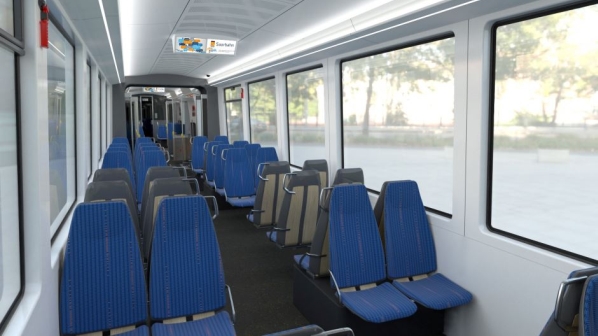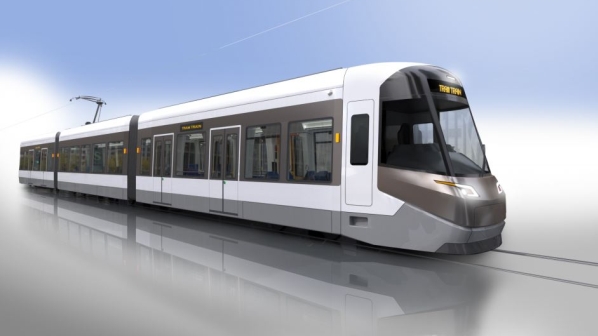The tender was launched by Albtal Transport Company (AVG), Karlsruhe Transport Authority (VBK), Saarbahn, the State of Salzburg, the Neckar-Alb tram-train association, and Upper Austria infrastructure manager, Schiene OÖ. This follows the signing of an agreement in Karlsruhe on March 11 2019 to jointly procure tram-trains through the VDV TramTrain project with the aim of achieving significant savings in resources, lead times and costs.
The project, launched in July 2017, aims to ensure the future viability of the Karlsruhe model for tram-train systems and potentially open it up to new operators.
The tender includes the development, production and approval of the vehicles, as well as maintenance for up to 32 years. “This has the great advantage of the manufacturer being responsible for the maintenance for the duration of the expected vehicle life,” says overall project manager, Mr Thorsten Erlenkötter, who works for VBK. “Thus, long-term good quality and availability can be guaranteed.”
The full delivery of the order is expected to take 10 years.

“Our goal from the beginning was to keep tram-trains competitive compared with cheaper full-rail multiple units, and we stuck to it,” Erlenkötter says. “The industrial dialogue that we conducted with well-known rail vehicle manufacturers as part of the project showed that, on the one hand, the desired significant savings are possible for all partners and, on the other hand, the manufacturer can implement the requirements of our technical specifications.”
The project will start with the development and approval of a standard model, with the costs shared by the partners, resulting in major savings. From this, five variants will be produced that meet operator-specific requirements.
For example, VBK requires a unidirectional vehicle for inner-city services, while the State of Salzburg requires a version that can operate at 1kV dc. The vehicles for Baden-Württemberg, including for AVG and the Neckar-Alb tram-train association, will feature toilets which are not required on the Schiene OÖ vehicles.
As Saarbahn does not require any modifications from the base variant it will receive the first vehicles, which are due to be delivered in July 2024.
“This is an unprecedented project that we can all be proud of,” says Mr Ascan Egerer, technical director of AVG and VBK, which is responsible for the overall project management. “I am happy and relieved that our three years of joint work is now bearing fruit. We are now very excited to receive the offers.”
AVG and Saarbahn have successfully operated regional light rail systems for decades, with the four other operators drawing from this experience as they look to introduce new tram-train systems from the city centre to the surrounding regions.
“The exchange of experiences was also an essential goal of our joint project,” Erlenkötter says. “Because the nice thing about our industry is that we are not competitors, we all have the common goal of convincing as many people as possible to switch from cars to public transport. This requires attractive offers.”
For detailed data on LRV orders from around the world, subscribe to IRJ Pro.

